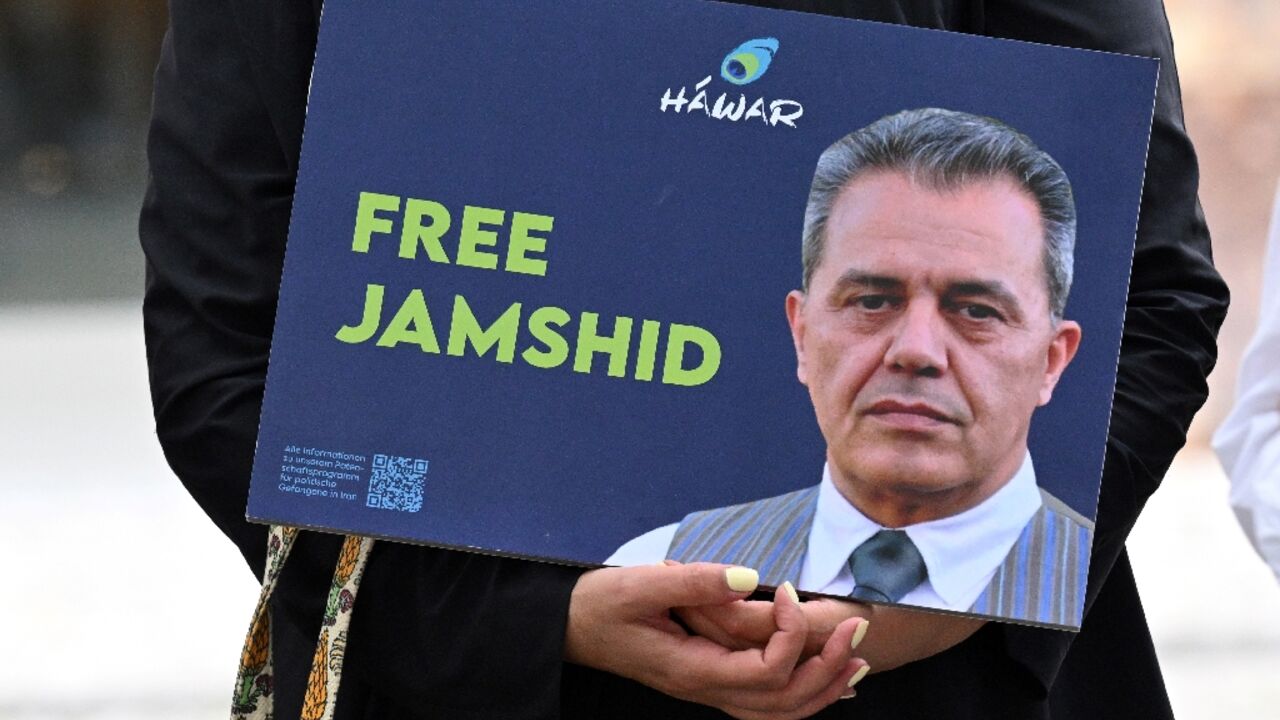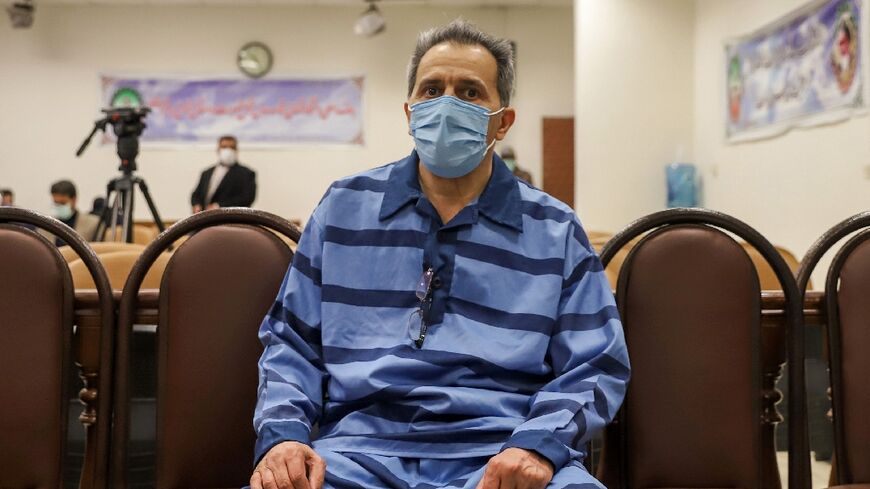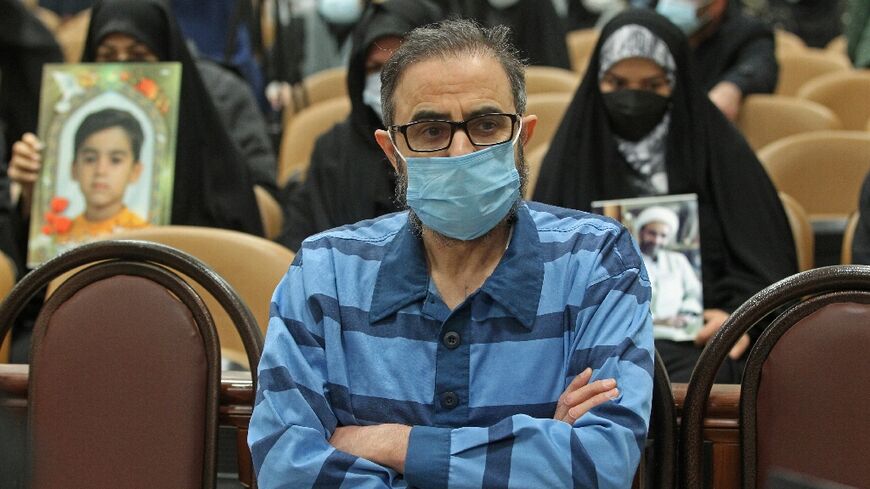Iranian dual nationals alarmed after Tehran executes German-Iranian

Iran's execution of a German-Iranian dissident this week is a clear message that a Western passport cannot shield critics of the Tehran government, Iranians with dual nationality say.
Jamshid Sharmahd, 69, was executed on Monday after several years behind bars, sparking condemnation from Germany and the European Union.
"It's terrifying to wake up to this kind of news. It's proof that this regime is staying in power through violence, cruelty and executions," said Sahar Aghakhani, a 30-year-old Franco-Iranian working in the health sector.
"But it's also a message: dual nationality does not protect you against the Islamic Republic of Iran."
Sharmahd, a German citizen of Iranian descent and a US resident, had written for an Iranian opposition group's website based abroad that strongly criticised the Islamic republic's leadership.
Iranian authorities seized Sharmahd in 2020 while he was in the United Arab Emirates, according to his family.
Iran accused him of involvement in a deadly 2008 mosque bombing, and sentenced him to death in 2023 after what rights group Amnesty International called "forced confessions" and a "sham trial".
Now the the families of other detainees are worried, including the wife of Iranian-Swedish academic Ahmadreza Djalali.
The resident of Sweden was arrested in Iran in 2016 and sentenced to death in 2017 on charges of spying for Israel's Mossad. He has since been granted Swedish nationality.
"I'm really afraid," Vida Mehrannia told AFP.
"We cannot prevent the same scenario from happening to Ahmadreza."
- 'Very chilling effect' -
Several other dual nationals have been put to death since 2023.
Iran hanged Habib Chaab, an Iranian-Swedish national, on a "terrorism" conviction last year, drawing strong condemnation from Sweden.
It also executed Alireza Akbari, a former Iranian deputy defence minister who was granted British citizenship after leaving his post, last year after he was convicted of spying for Britain.
Like Sharmahd, two other critics of the Iranian leadership based abroad were "abducted", Amnesty says.
Chaab disappeared in Turkey in 2020, it said.
The previous year, dissident journalist Rouhollah Zam, who lived in France, was "abducted" during a visit to Iraq, according to Amnesty. He was executed in Iran in 2020.
US-Iranian human rights lawyer Gissou Nia, of the Atlantic Council, said the latest execution had "a very chilling effect".
"There are Iranian dissidents all over the world... This essentially puts a target on all their backs," she told the Deutsche Welle broadcaster.
Aghakhani said she had not been to Iran since 2022.
That year the death in custody of young Iranian Kurd Mahsa Amini, after she was arrested for allegedly violating the country's strict dress code for women, sparked mass protests. But they were violently crushed by Iran's leadership.
"Among close acquaintances we now think twice before travelling abroad, including to countries in Iran's neighbourhood," she said.
Ayda Hazijadeh, another Franco-Iranian who is a Socialist member of France's parliament, said she had not returned to her home country for a decade.
"I take zero risks. I wouldn't tempt fate," she said.
- 'Hostages' -
Iran, which does not recognise dual citizenship, holds several Europeans in detention, most of them also Iranian.
Rights groups describe them as "hostages" used as leverage in negotiations.
Several Westerners have been released in informal prisoner swaps, but families often feel in the dark about progress in behind-the-scenes talks. Some have accused Western governments of being ineffective.
Germany's Foreign Minister Annalena Baerbock said the German embassy in Tehran had worked "tirelessly" on Sharmahd's behalf.
But Mariam Claren -- the daughter of German-Iranian Nahid Taghavi who has been held in Iran since 2020 -- charged on X that his "state murder could have been prevented if the German government had really wanted to".
Mahmood Amiry-Moghaddam, director of the Norway-based NGO Iran Human Rights, called on the international community to condemn the "extrajudicial killing".
According to IHR, at least 627 people have been executed this year by Iran.
NGOs outside Iran accuse Tehran of using capital punishment as a tool to instil fear.
The execution came days after Israel carried out air strikes on military sites in Iran as Middle East tensions soar.
Hazijadeh, the lawmaker, said the reason for the timing of the execution was unclear. "There are so many regional, international issues at stake," she said.
"I don't think the hostages have been abandoned. States are doing their best, but it's extremely difficult to negotiate with the Iranian regime."

